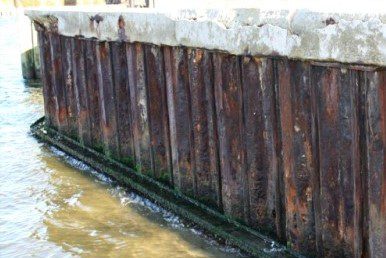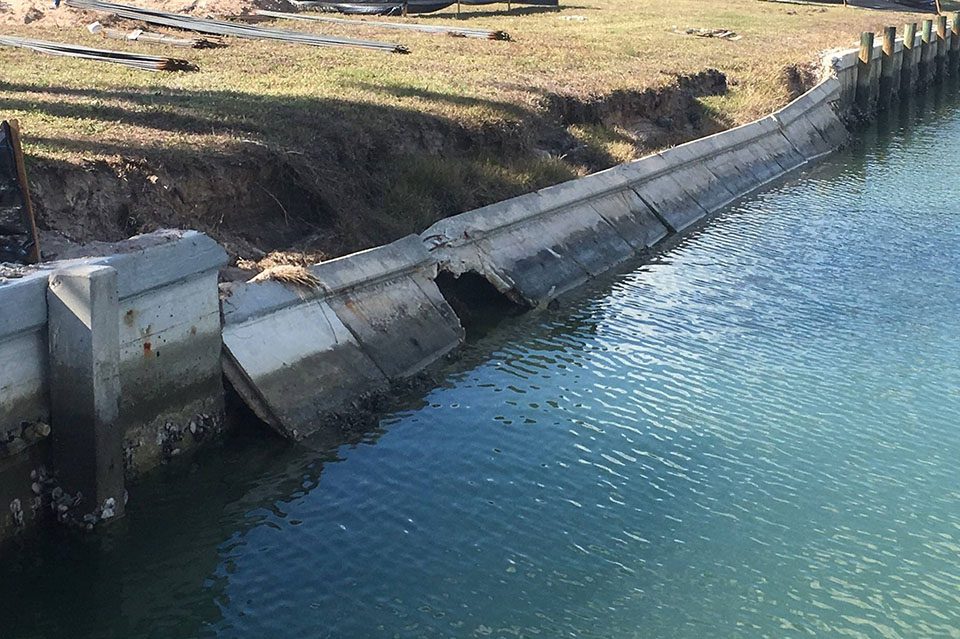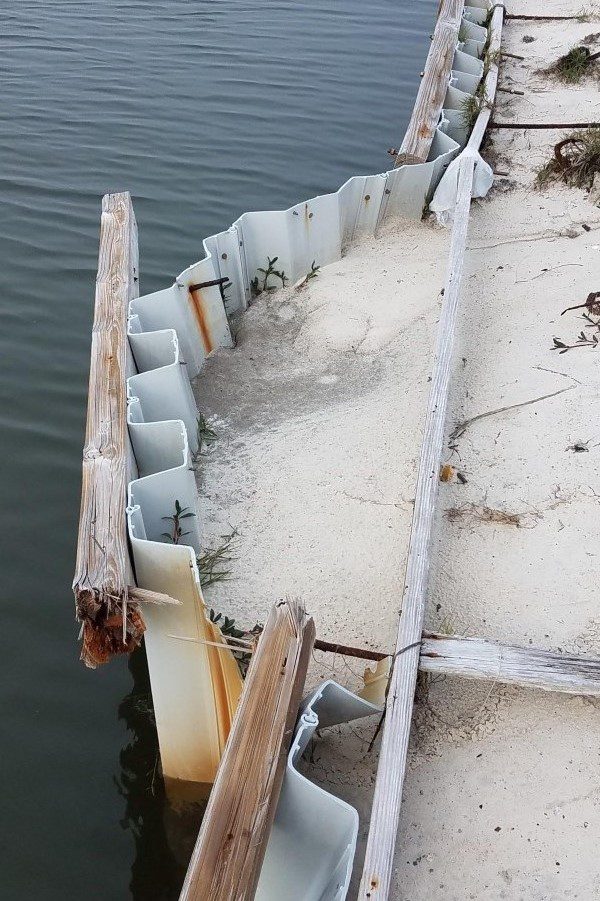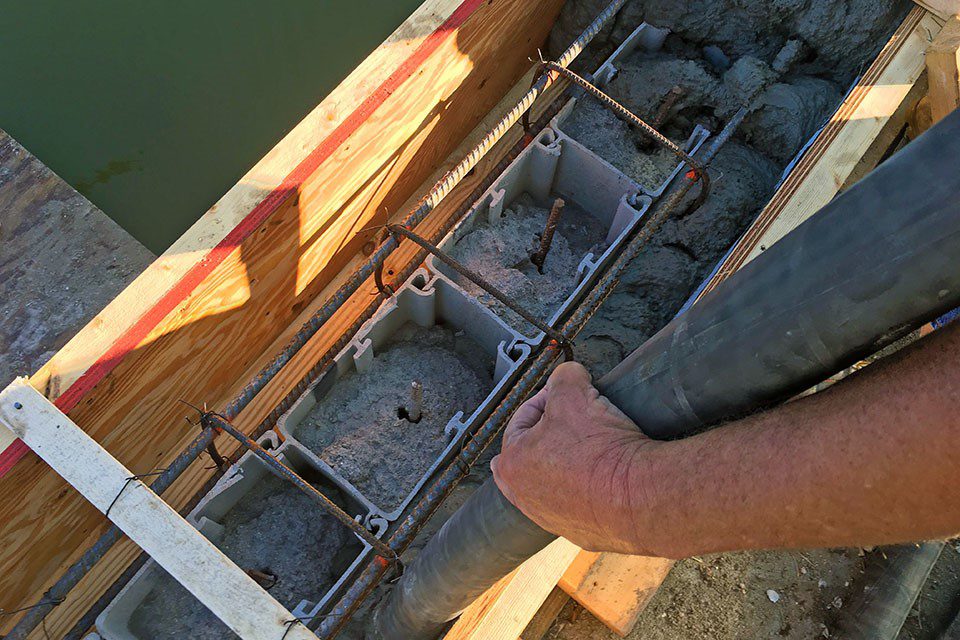Property Owners
What is the best seawall or retaining wall material for your project?
It really depends on your project and requirements, including size, loads, job site access, soil conditions, wall exposure height, and more. As a property owner, whether you're a homeowner, commercial owner or developer, or government entity, we all work under budget constraints. However, you want the best for your money. And, there is a difficult cost-value decision to be made.
Your land, property, home or business, and upland structures are all protected by one very important structure - the seawall or retaining wall. You need to make sure it is built right and the first time. You don't want to keep spending money fixing or repairing a wall.
When it comes to deciding on your seawall material, engineer and contractor installer, make sure to ask a lot of questions. Seawalls and retaining walls are expensive and you want to do it right. There are many choices in materials and we'll look at the more popular choices. Read more information about material choices based on exposure height and the associated cost.
Compare 4 types of common seawall materials

Steel sheet pile
- Single side, single lock
- Steel is very strong
- Corrodes in salt water
- Custom lengths
- Install in soil and rock
- Cost varies by strength and shape, tends to be expensive
- Requires heavy equipment

Concrete panel
- Single side, single lock
- Strength from steel rebar and concrete
- Corrodes in salt water
- Limited lengths for embedment
- Panel cost varies based on depth, length and strength
- Must dig trench to install in rock
- Requires heavy equipment

Single vinyl sheet pile
- Single side, single lock
- Strength from vinyl
- Custom lengths
- Sheet cost varies based on vinyl strength
- Cannot install in rock
- Requires wales for many walls
- Does not require heavy equipment

Truline system
- Double wall, double locks
- Strength from steel rebar and concrete
- Vinyl form protects steel for long-term performance, especially in salt water
- Custom lengths for proper embedment
- Vinyl form material cost does not vary
- Can install in various soil and rock (pin pile into rock)
- Install up to 16 ft. exposed height walls without wales
- Does not require heavy equipment
